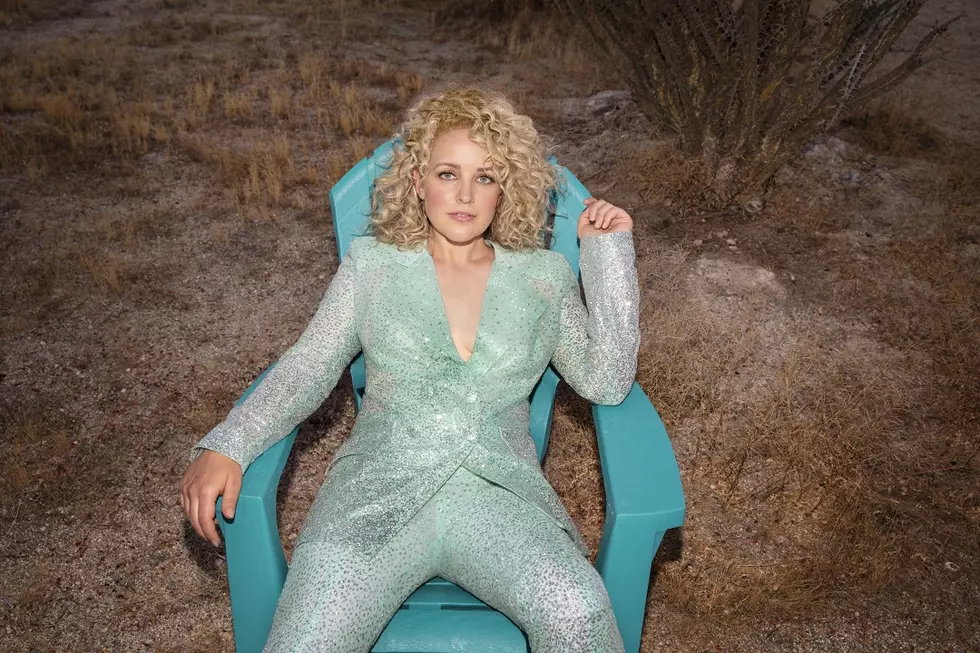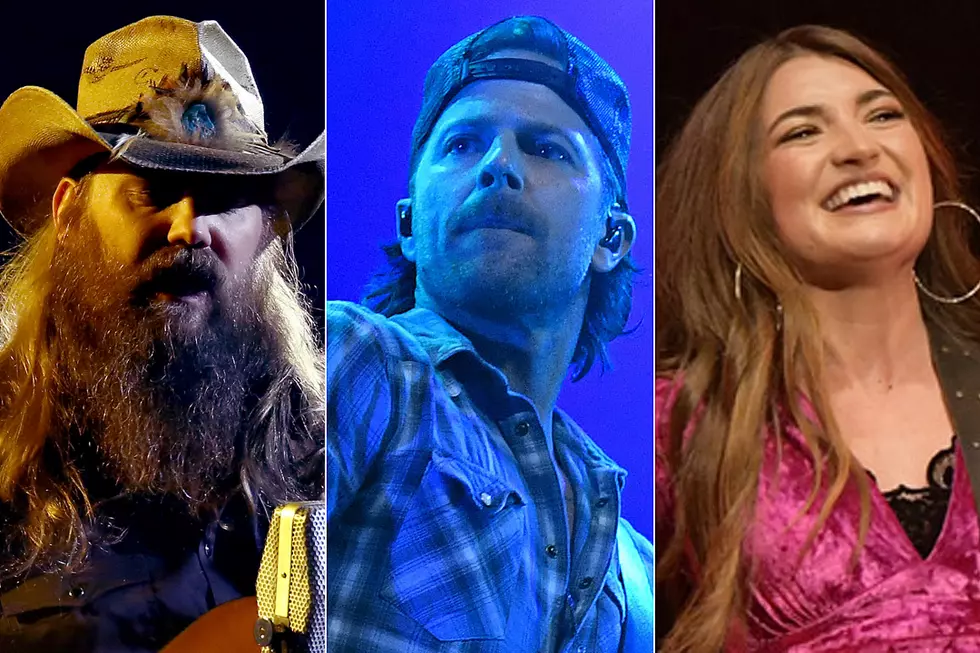
Cam Wants Change for Women in Country Music: ‘We’ve Got to Wake Up and Get Better Together’
In 1964, Johnny Cash recorded a song called "The Ballad of Ira Hayes" that tells the tragic, true story of a Pearl Harbor veteran. Hayes—a Native American who was one of the six heroic men who raised the American flag on Iwo Jima during World War II—was a forgotten hero who ultimately drank himself to death after he returned home. Radio stations across the country refused to play Cash's songs, as they believed it would isolate their audiences.
In response, Cash wrote a strongly worded letter to radio programmers to condemn the decision, calling them "cowards" and blatantly asking, "where are your guts?" for boycotting a song with such an important message.
Flash forward to 2018, and the women of country music find themselves in a similar predicament—being shushed on radio because "women don’t like listening to other women."
Cam is a staunch supporter of women in country music and as a woman, knows what it’s like to be on the receiving end of these conversations. She has become a prominent voice on the issue of female representation in the genre—or, the lack thereof.
When the country singer scored an opening slot on Sam Smith's the Thrill of It All Tour Tour in summer of 2018, she learned from diverse crowds how boundless country music is—and how locked into misconceptions the genre is by the people in the top-floor offices.
“I came from the San Francisco Bay area, and the culture that is around there ... I didn't run into so many issues that affected me in a way that made me think about the world like this,” Cam tells Taste of Country. “Then I came into country music and as I started moving upward in my career, I started looking around and there were no women and there were no people of color. I also know that a lot of rooms made me feel a little awkward. Then I hit a wall for myself where I couldn't progress."
Country radio consultant Keith Hill famously put gas on the fire when he advised radio stations to not play female artists as often, claiming it has a negative impact on ratings. "If you want to make ratings in country radio, take females out," he told Country Aircheck in 2015, adding that “women like male artists." In the three years since he made the comment, things seem to have only gotten worse.
The "Burning House" singer feels that a main complication is a lack of opportunity for women and people of different backgrounds. "By correct, I mean equal," she states, making her point known.
As a member of the Grammys Task Force alongside Sheryl Crow, Common, Andra Day and more, Cam has witnessed the discrepancies affecting women across the board. A study by the Annenburg Inclusive Initiative (in addition to statistics from Women in Music) shows that only 22 percent of the 600 biggest hits from 2012 to 2017 were performed by solo women, and only 12 percent of these songs were written by women. Additionally, women accounted for 16 percent of artists at the top of the charts in 2017 and make up a mere two percent of producers, averaging out to 49 males to one female.
Cam admits she doesn’t have the answers for how to fix the problem in its entirety, but she can suggest ways to make progress.
"Even in these Grammy Task Force meetings, I think it's so important that we're all learning that women's voices are at the center of this,” she says. "I know there's a lot of male allies that want to help, but you cannot help by taking over and figuring things out—all those things that got us into trouble in the first place. You've got to put women at the center and really have them hear it out and create solutions."
Cam has found her own way to contribute to the solution. She recognized the power in women speaking to one another, even in times of hardship, and channeled the progressive notion of women having an honest and productive conversation in her powerful song "Diane."
"So how can you fix the whole system? The only thing that I can say is it's not going to be a clear-cut path. It's going to be new thinking that takes us to the solutions and the only way to start thinking new is to fully educate yourself and say, 'When someone comes at me with information that feels different than what I know, say, 'What are they saying?'" she explains, adding that she’s working to hold herself accountable.
"I've done plenty of things that weren't right decisions. I was complicit in this whole thing, too. I was a part of this system and I've let it go this far, and now all of us are waking up and saying, 'Hey, nobody's got to get burned, all we've got to do is wake up and get better together.'"
For Cam, it’s ultimately about people uniting to combat toxic mentalities together.
"Understanding all this, now people are starting to talk about it, and I think you have to see it as this is a sense of a bigger understanding that we're all trying to come together as a group and understand that when some people are kept out and kept down that are talented, everybody is missing out," she says. "You have to start asking hard questions and as you start asking hard questions—like with me, there's going to be times in my life that I made wrong calls and that I assumed something was right, and I let other people get hurt because of it.
"This is what we're all going to start understanding, and it's okay, because we're going to figure this out. The only way forward is for everybody to open their minds and their hearts to how we can take care of each other."
Cam recently parted ways with her label, Sony Music Nashville, and moved to RCA New York. She was scheduled to embark on her Road to Happiness Tour this fall, but canceled it in the wake of the label switch. She does plan to reschedule the tour after releasing new music.
12 Country Women Who Are Changing Music for the Better
More From 101.9 The Bull






![Cam’s ‘Till There’s Nothing Left’ Professes Love Until the End [LISTEN]](http://townsquare.media/site/623/files/2020/02/cam-til-theres-nothing-left.jpg?w=980&q=75)



